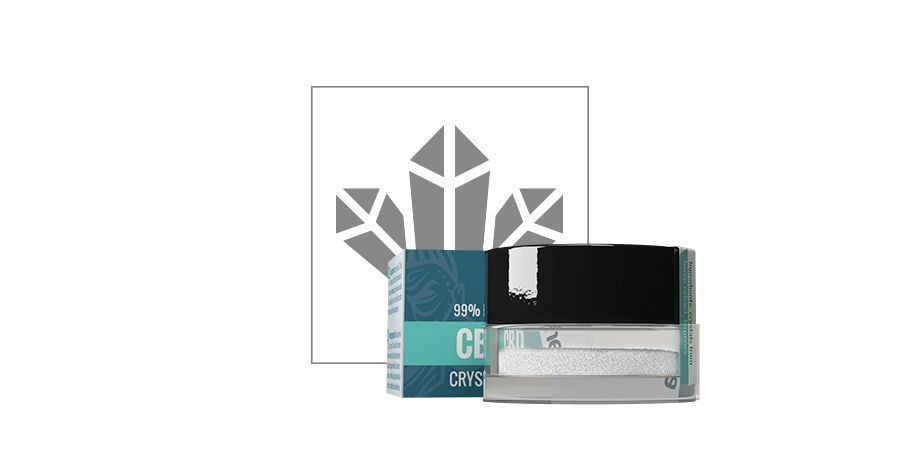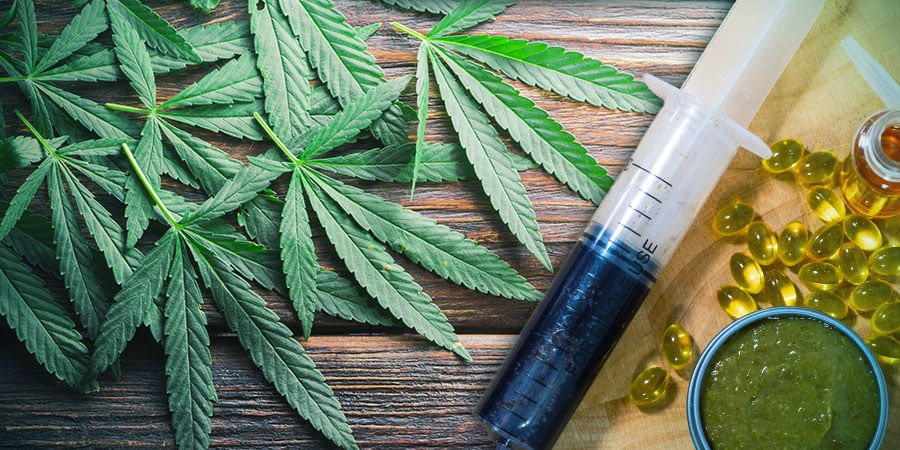-
Seedshop
-
Feminized
Cannabis seeds -
Autoflowering
Cannabis Seeds -
Regular
Cannabis Seeds -
F1 Hybrid
Cannabis Seeds -
CBD
Cannabis Seeds -
Zamnesia
Cannabis Seeds
-
Top 10’s
- Top 10 Feminized Seeds
- Top 10 Autoflowering Seeds
- Top 10 Regular Seeds
- Top 10 USA Cannabis Strains
- Top 10 Zamnesia Seeds
-
Favourites
- Beginner Strains
- Below 1% THC
- Classic Cannabis Strains
- Cup Winners
- F1 Hybrids
- Fast-Flowering Strains
- High CBD Strains
- High THC Strains
- Mix Packs
- Zamnesia Exclusive Collabs
-
-
Headshop
-
Vaporshop
- Spare Parts & Accessories
- AirVape X
- AirVape XS GO (2021)
- Arizer Air MAX
- Arizer Extreme Q
- Arizer Solo 2
- Arizer V-Tower
- Arizer XQ2
- Boundless CFC 2.0 Vaporizer
- Boundless CFX
- Boundless TERA (V3)
- CRAFTY+
- DaVinci IQ2
- DaVinci IQC
- DaVinci MIQRO
- Dr. Dabber Boost EVO
- Dr. Dabber Stella
- DynaVap Omni 2021
- DynaVap VapCap "M" PLUS 2023
- DynaVap VapCap 'M' 2021
- DynaVap VonG (i) Titanium
- Dynavap The "B" Series
- Eagle Bill
- Firefly 2+
- Flowermate Aura
-
Healthshop
-
Smartshop
-
Shroomshop
-
Growshop
-
Seedshop
All CategoriesSeedshop
-
Vaporshop
All CategoriesVaporshop
- Top 10 Vaporizers
- Spare Parts & Accessories
- AirVape X
- AirVape XS GO (2021)
- Arizer Air MAX
- Arizer Extreme Q
- Arizer Solo 2
- Arizer V-Tower
- Arizer XQ2
- Boundless CFC 2.0 Vaporizer
- Boundless CFX
- Boundless TERA (V3)
- CRAFTY+
- DaVinci IQ2
- DaVinci IQC
- DaVinci MIQRO
- Dr. Dabber Boost EVO
- Dr. Dabber Stella
- DynaVap Omni 2021
- DynaVap VapCap "M" PLUS 2023
- DynaVap VapCap 'M' 2021
- DynaVap VonG (i) Titanium
- Dynavap The "B" Series
- Eagle Bill
- Firefly 2+
- Flowermate Aura
- Flowermate Cap Pro
- Flowermate Slick
- Flowermate V5.0S Pro
- G Pen Connect
- G Pen Elite II
- G Pen Micro+
- G Pen Pro
- G Pen Roam
- Hydrology9 Vaporizer
- Hyer Big-E Rig
- MIGHTY
- MIGHTY+
- PAX Mini
- PAX Plus
- PLENTY
- Pax 3 Vaporizer
- Puffco Peak PRO Smart Rig
- Puffco Peak Smart Rig
- Puffco Plus
- Storm Vaporizer
- The Proxy (Puffco)
- VOLCANO CLASSIC
- VOLCANO HYBRID
- Vape-Lifter
-
Smartshop
All CategoriesSmartshop
- Top 10 Smartshop
- Zamnesia Gift Cards
- After Party
- Aphrodisiacs
- Aromatherapy
- Blue Lotus
- CBD Vape Juice
- Capsule Machines
- Crystals, Gemstones & Minerals
- Dream Herbs
- Drug Tests
- Extracts
- Happy Caps
- Herbal Tea
- Herbs & Seeds
- Incense
- Kanna
- Kratom
- LSA Seeds
- Mescaline Cacti
- Microdosing
- Nootropics
- Relaxing
- Salvia divinorum
- Smart Seeds
- Stimulants
- Supplements
- Tinctures
- Vape Herbs
-
TRIBE
All CategoriesTRIBE
- My Membership
- Spend Gift Points
- Exclusive products
- Earn Extra Gift Points
-
TRIBE
- Early Access
- Refer a Friend
- Information
-
TRIBE
-
Language
 United States
United States
Friday, 18 April and Thursday, 24 April 2025*
Full Spectrum CBD Vs. CBD Isolate: Which Is Better?
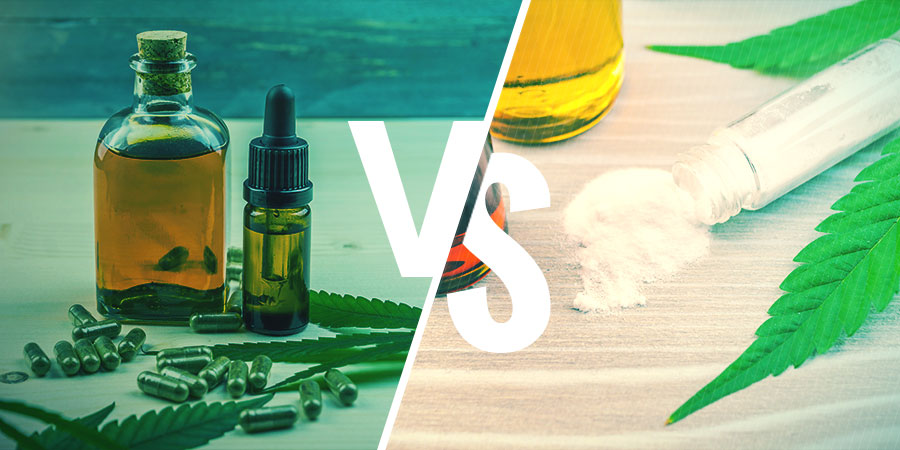
With an array of different CBD products on the market, questions inevitably arise about their comparative effectiveness. When it comes to full spectrum CBD versus CBD isolate, the main difference is clear. While one is molecularly isolated, the other contains a spectrum of cannabinoids, though primarily CBD.
There are advantages and disadvantages to both. While full spectrum CBD may be more effective in certain instances, isolate is purer and completely free of THC. As such, which one you choose will depend on exactly what you are looking for in a CBD product.
WHAT IS THE DIFFERENCE BETWEEN CBD ISOLATE AND FULL SPECTRUM CBD?
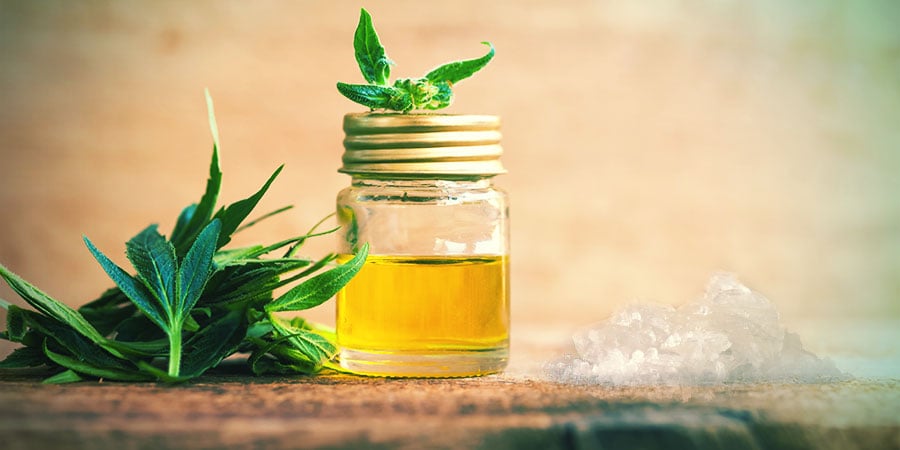
Both CBD isolate and full spectrum CBD are derived from hemp. In order to qualify as “hemp”, cannabis plants must contain less than 0.3% THC. The extraction process that is used to draw CBD out of hemp is ultimately what determines if the final product will come out in the form of isolate, or full spectrum CBD.
Full spectrum CBD is a whole-plant extraction, and as such, contains numerous other cannabinoids and terpenes in addition to CBD. For instance, full spectrum CBD can be expected to contain cannabinoids such as CBG, CBN, and CBC, as well as an array of terpenes and flavonoids. By comparison, CBD isolate is refined to truly isolate CBD, making sure that the final product contains nothing but pure molecular cannabidiol.
CBD isolate is the purest form of CBD available. The extraction and filtration processes remove all other cannabinoids, terpenes, flavonoids, and plant matter. After all is said and done, isolate’s final form is a crystalline powder composed of around 99% pure CBD.
WHAT IS THE ENTOURAGE EFFECT?
The primary advantage of full spectrum CBD is obvious; its array of cannabinoids are able to produce more profound effects than just CBD alone. However, there is more to full spectrum CBD’s effectiveness than just its collection of cannabinoids. The term “entourage effect” refers to the way that CBD works in synergy with other cannabinoids, terpenes, and flavonoids to create an effect greater than the sum of its parts. Some researchers now believe that marijuana’s effects do not just occur because of the presence of cannabinoids, but because of the way these cannabinoids and other chemicals interact with each other in the human body.
The entourage effect can be understood when looking at the different effects produced by THC and CBD when taken separately, versus when taken together. CBD has been shown to be an “allosteric modulator” in the presence of THC. This essentially means that, although it doesn’t bind to CB1 receptors in the same way as THC, CBD can change the shape and signalling efficacy of these receptors, resulting in lessened psychotropic effects from THC. This synergy between THC and CBD allows medical patients to consume larger amounts of THC without experiencing some of the negative side effects that may accompany it (like anxiety).
A study conducted in 1981 was the first to confirm the entourage effect. Using a bioassay for cannabis known as the ring test, the study found that consuming marijuana produced 330% more activity in mouse subjects than just consuming THC on its own. Researchers concluded that the plant must contain synergistic compounds that work together to produce effects, and inhibitor compounds that prevent other cannabinoids from producing effects.
Again, it is not just cannabinoids that exist in synergy, but also terpenes and flavonoids. For example, it has been suggested that the terpene pinene can also help to reduce some of the cognitive side effects of THC.
ADVANTAGES AND DISADVANTAGES
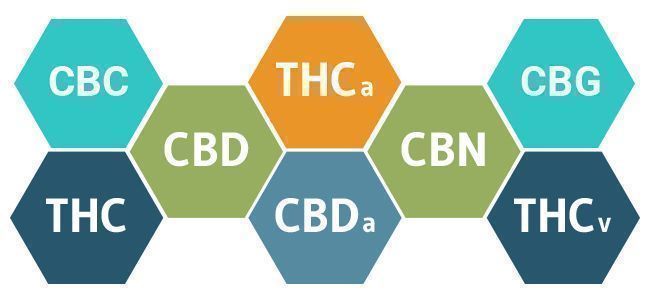
The main advantage of full spectrum CBD is its reported effectiveness. Boosted by the entourage effect, full spectrum cannabidiol produces more potent effects than just CBD isolate. A 2015 study published by the Lautenberg Center For General Tumor Immunology concluded that test subjects dosed with full spectrum CBD reported higher levels of relief than those dosed with isolate.
On the other hand, a concoction of different cannabinoids is not always a great thing. Since the legal limit on THC content is 0.3% in most places, full spectrum CBD must contain no more than this. To be fair, almost all full spectrum CBD claims to contain less than 0.3% THC. However, even trace amounts of THC can show up on a drug test in certain instances, especially if they are being consumed regularly enough. This can become especially problematic for CBD consumers who are randomly drug tested. All of Zamnesia’s full spectrum CBD products contain trace amounts of THC.
As such, CBD isolate may be a better choice for consumers who want to avoid THC altogether. If you undergo regular drug tests or feel that you may at some point soon undergo random testing, it’s a good idea to stick to CBD isolate. While it may not be quite as effective, it gets most of the job done with none of the risks. Most isolates contain practically nothing else besides 99–100% pure cannabidiol.
THE RIGHT CBD FOR THE RIGHT SITUATION
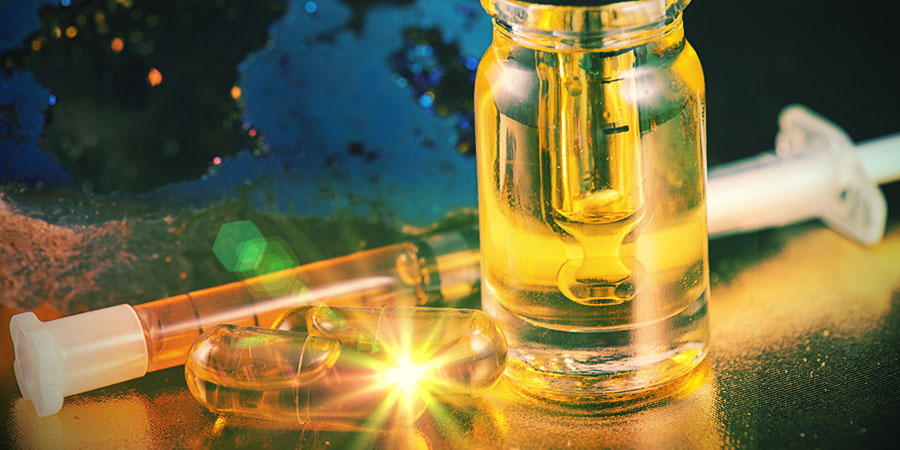
When deciding between these two products, it really all comes down to you and your situation.
CBD consumers who need to pass drug tests should probably stick to CBD isolate. Meanwhile, those seeking maximum effects should strongly consider making full spectrum CBD their preferred choice.
Others may like the fact that CBD isolate is tasteless and odourless. It can easily be mixed into any liquid or food, unlike full spectrum oil, which will always taste like cannabis—unless dosed in a capsule and swallowed, that is.
It should be noted that the average consumer tends to prefer whole-plant extracts to other forms of marijuana. An international survey published in 2013 and completed by 953 participants from 31 different countries found that almost all of them preferred whole-plant extracts containing a variety of cannabinoids over synthetic cannabis-based medicines like Marinol.

- (n.d.). - https://www.ncbi.nlm.nih.gov
- Hazekamp A, Ware MA, Muller-Vahl KR, Abrams D, & Grotenhermen F. (2013 Jul-Aug). The medicinal use of cannabis and cannabinoids--an international cross-sectional survey on administration forms - https://www.ncbi.nlm.nih.gov
- Pertwee RG. (1972 Dec). The ring test: a quantitative method for assessing the 'cataleptic' effect of cannabis in mice - https://www.ncbi.nlm.nih.gov
- Ruth Gallily, Zhannah Yekhtin, & Lumír Ondřej Hanuš. (2015/2/5). Overcoming the Bell-Shaped Dose-Response of Cannabidiol by Using Cannabis Extract Enriched in Cannabidiol - https://www.scirp.org
- France
- Germany
- International
- Italy
- Netherlands
- Spain
- United Kingdom
- United States
You might also like
-
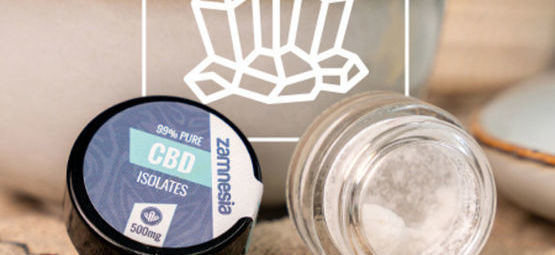
 4 min
23 January 2024
7 Easy Ways To Use And Dose CBD Crystals
Most of us know of the cannabinoid CBD by now, but what about CBD crystals? Promising superior potency and up to 98% purity, are crystals the ideal way to experience CBD? Here we review 7 ways to use ...
4 min
23 January 2024
7 Easy Ways To Use And Dose CBD Crystals
Most of us know of the cannabinoid CBD by now, but what about CBD crystals? Promising superior potency and up to 98% purity, are crystals the ideal way to experience CBD? Here we review 7 ways to use ...
-
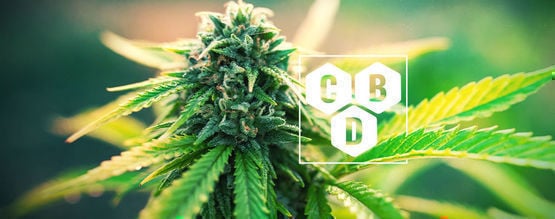
 6 min
9 August 2022
What Is Cannabidiol (CBD)?
CBD has risen to stardom in the supplement world. But what propelled a single plant-derived molecule to such great heights? There are certain elements at play here. Early research has turned out some ...
6 min
9 August 2022
What Is Cannabidiol (CBD)?
CBD has risen to stardom in the supplement world. But what propelled a single plant-derived molecule to such great heights? There are certain elements at play here. Early research has turned out some ...
-
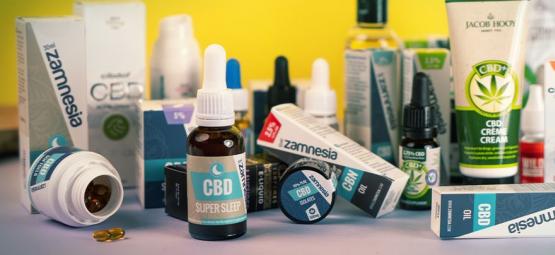
 4 min
6 August 2021
How To Use CBD: Which CBD Product Is Right For You?
CBD is becoming an increasingly popular dietary supplement, yet for the unfamiliar, knowing the most suitable way to take CBD can be a challenge. ...
4 min
6 August 2021
How To Use CBD: Which CBD Product Is Right For You?
CBD is becoming an increasingly popular dietary supplement, yet for the unfamiliar, knowing the most suitable way to take CBD can be a challenge. ...
-
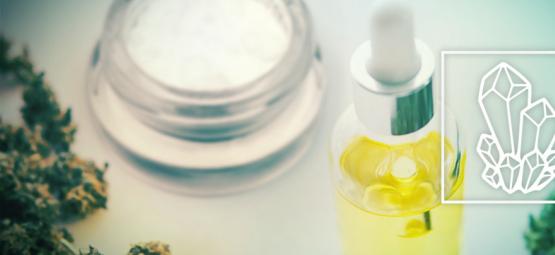
 3 min
13 October 2019
How To Make Your Own CBD Oil With CBD Crystals
Don't have access to CBD flowers? Don't worry! Using CBD crystals to make your own CBD oil is much easier and less messy. ...
3 min
13 October 2019
How To Make Your Own CBD Oil With CBD Crystals
Don't have access to CBD flowers? Don't worry! Using CBD crystals to make your own CBD oil is much easier and less messy. ...
Categories
-
Seedshop
- Feminized Cannabis Seeds
- Autoflowering Cannabis Seeds
- Regular Cannabis Seeds
- F1 Hybrids
- CBD Seeds
- Zamnesia Seeds
- Top 10 Autoflowering Seeds
- Top 10 Regular Seeds
- Top 10 USA Cannabis Strains
- Top 10 Zamnesia Seeds
- Top 10 Feminized Seeds
- Beginner Strains
- Below 1% THC
- Classic Cannabis Strains
- Cup Winners
- F1 Hybrids
- Fast-Flowering Strains
- High CBD Strains
- High THC Strains
- Mix Packs
- Zamnesia Exclusive Collabs
- Amnesia Seeds
- Blueberry Seeds
- Cheese Seeds
- Diesel Seeds
- Gorilla Seeds
- Haze Seeds
- Kush Seeds
- Purple Seeds
- Skunk Seeds
- White Widow Seeds
- Zamnesia Seeds
- ACE Seeds
- Advanced Seeds
- Amsterdam Genetics
- Anesia Seeds
- Auto Seeds
- Barney's Farm
- Big Buddha Seeds
- Bomb Seeds
- BSB Genetics
- BSF Seeds
- Buddha Seeds
- Bulldog Seeds
- Cali Connection
- Cannarado Genetics
- CannaBioGen
- CBD Crew
- CBD Seeds
- Compound Genetics
- The Dank Seeds
- Dark Horse Genetics
- Delicious Seeds
- Devil Harvest Original
- Dinafem
- DNA Genetics
- Doctor's Choice
- Dr. Underground
- Dutch Passion
- Elite Seeds
- Eva Seeds
- Exotic Seed
- Expert Seeds
- FastBuds
- Female Seeds
- Fenocan
- Flash Auto Seeds
- French Touch Seeds
- Garden of Green
- GeneSeeds
- Genehtik Seeds
- G13 Labs
- Grass-O-Matic
- Greenhouse Seeds
- Grow Your Own (DNA)
- Growers Choice
- Homegrown Fantaseeds
- House of the Great Gardener
- Humboldt Seed Company
- Humboldt Seed Organization
- Kalashnikov Seeds
- Kannabia
- The Kush Brothers
- Light Buds
- Little Chief Collabs
- Medical Seeds
- Ministry of Cannabis
- Mr. Nice
- Nirvana Seeds
- Original Sensible
- Paradise Seeds
- Perfect Tree
- Pheno Finder
- Philosopher Seeds
- Positronics Seeds
- Purple City Genetics
- Pyramid Seeds
- Rare Dankness
- Reggae Seeds
- Reserva Privada
- Resin Seeds
- Ripper Seeds
- Royal Queen Seeds
- Sagarmatha Seeds
- Samsara Seeds
- Seedstockers
- Sensation Seeds
- Sensi Seeds
- Serious Seeds
- Silent Seeds
- Soma Seeds
- Spliff Seeds
- Strain Hunters
- Sumo Seeds
- Super Sativa Seed Club
- Super Strains
- Sweet Seeds
- T.H. Seeds
- Top Tao Seeds
- Vision Seeds
- VIP Seeds
- White Label
- World Of Seeds
- Zativo Seeds
- Seed Banks
-
Headshop
-
Vaporshop
-
Healthshop
-
Smartshop
- Top 10 Smartshop
- Zamnesia Gift Cards
- After Party
- Aphrodisiacs
- Aromatherapy
- Blue Lotus
- CBD Vape Juice
- Capsule Machines
- Crystals, Gemstones & Minerals
- Dream Herbs
- Drug Tests
- Extracts
- Happy Caps
- Herbal Tea
- Herbs & Seeds
- Incense
- Kanna
- Kratom
- LSA Seeds
- Mescaline Cacti
- Microdosing
- Nootropics
- Relaxing
- Salvia divinorum
- Smart Seeds
- Stimulants
- Supplements
- Tinctures
- Vape Herbs
-
Shroomshop
-
Growshop
- Top 10 Growshop
- Top 10 Plant Seeds
- All Seeds
- Cacti
- Chili & Pepper Seeds
- Companion Plants
- Edible Plant Seeds
- Exotic Seeds
- Flower Seeds
- Fruit Seeds
- Herb Seeds
- Interior Plant Seeds
- Microgreens
- Psychoactive Plant Seeds
- Sprouting
- Vegetable Seeds
- Wellness Plant Seeds
- After Harvest
- Climate Control
- Fertilizer
- Grow Tents
- Harvest, Dry & Cure
- LED Grow Lights
- Plant Seeds
- Propagation
-
Merchandise
-
Sale section
Account
Information
Our Offers
Our website won't work without these cookies activated. Therefore functional cookies can't be disabled.




















